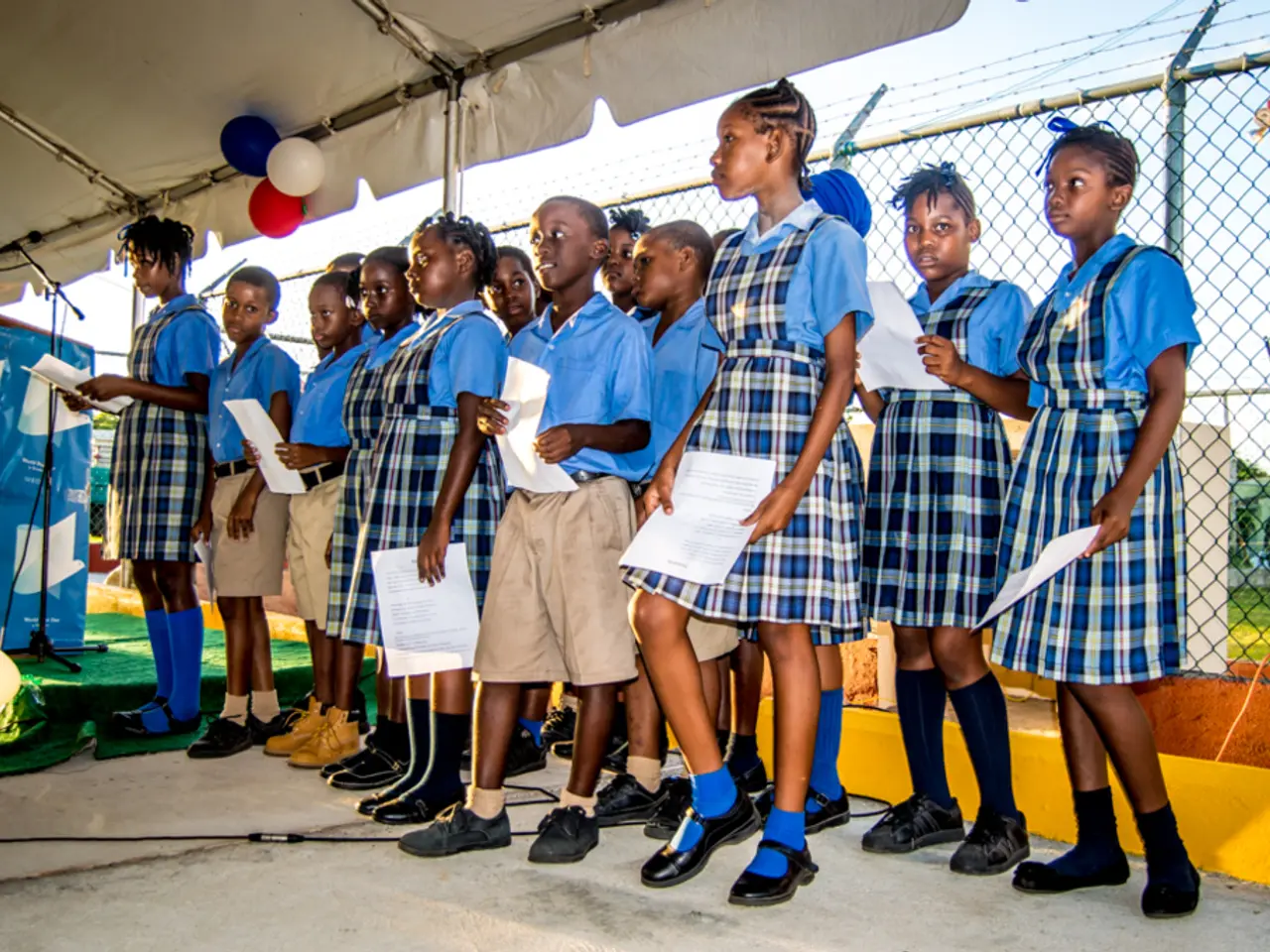International Students Facing Threat as US Bill Causes Alarm, Given significant roles at Amazon and Tesla
The tech industry and international students are closely watching the progress of the "Fairness for High-Skilled Americans Act of 2023," a bill proposed in the U.S. Congress that aims to end the Optional Practical Training (OPT) program.
This bill, if passed, could have significant consequences for international students, particularly those from India who are currently benefiting from the OPT program. The OPT program allows international students on F-1 visas to work in the U.S. for a limited time after finishing their studies, including those with degrees in science, technology, engineering, and math (STEM).
As of mid-2025, the bill remains under committee review and has not been passed into law. If enacted, it would effectively end post-study work rights for international students, many of whom are from India and work in the tech sector.
The potential impact of this legislation on the OPT program and international students, especially in technology fields, is significant. The U.S. tech sector and economy would suffer a loss in competitiveness, innovation, skilled labor, payroll contributions, and patent productivity by cutting off this talent pipeline. The U.S. risks losing global talent to other countries with more favorable post-study work policies like Canada and Germany.
Indian students, a large group benefiting from OPT, would lose job opportunities, leading to negative consequences for their careers and financial security. Thousands of highly trained graduates might find themselves leaving the U.S. just when they are ready to contribute.
Immigration officials and proponents of the bill argue that OPT is a loophole allowing job displacement of American workers and describe it as a "shadow guestworker program," pushing for a systemic repeal. However, some argue that the OPT program represents a larger system that needs to be dismantled entirely.
In 2024, a total of 194,554 international students were actively working in the United States under the OPT program, a 21% rise from the previous year. Notable tech companies like Amazon, Google, Meta, Microsoft, and Apple each brought on board over 1,000 OPT participants in 2024, indicating the critical importance of the OPT talent pool for the U.S. tech and finance industries, particularly in early-career positions that support future growth and innovation.
The OPT program is particularly significant for international graduates, especially those in STEM disciplines, as it offers a practical entry into the U.S. workforce after finishing their studies. The program is seen as a stepping stone toward full-time employment, a chance to gain experience, and in some cases, a lead-up to an H-1B visa.
No information in the search results indicates a current change to the OPT program beyond the proposed legislation or any approved reauthorization. The "Fairness for High-Skilled Americans Act" remains a pending reform proposal with substantial potential economic and workforce implications if passed.
Additional notes: The search results include other immigration-related bills like the Dignity Act of 2025, but these do not appear to directly affect OPT or this high-skilled worker issue. Jessica Vaughan from the Center for Immigration Studies describes the OPT program as a "shadow guestworker program." The details of the "Big Beautiful Bill" and how it may impact the OPT program are not specified in the provided paragraph.
References: [1] Financial Express (2024). Expanded hiring of international graduates through OPT by leading tech companies in the U.S. [2] U.S. Immigration and Customs Enforcement (2024). 2024 SEVIS by the Numbers report. [3] The Economic Times (2025). If passed, the "Fairness for High-Skilled Americans Act" could affect Indian students. [4] The Dignity Act of 2025. [5] Other immigration-related bills.
- The proposed "Fairness for High-Skilled Americans Act of 2023" has significant implications for education-and-self-development, as it could end the Optional Practical Training (OPT) program, which offers international students, particularly those from India who are studying in STEM fields, an opportunity for practical work experience in the technology sector after graduation.
- If passed, this legislation could have dire consequences for the U.S. politics and general-news landscape, with the potential loss of competitiveness, innovation, skilled labor, payroll contributions, and patent productivity in the U.S. tech sector, leading to a possible brain drain of talented international graduates to countries like Canada and Germany with more favorable post-study work policies.




